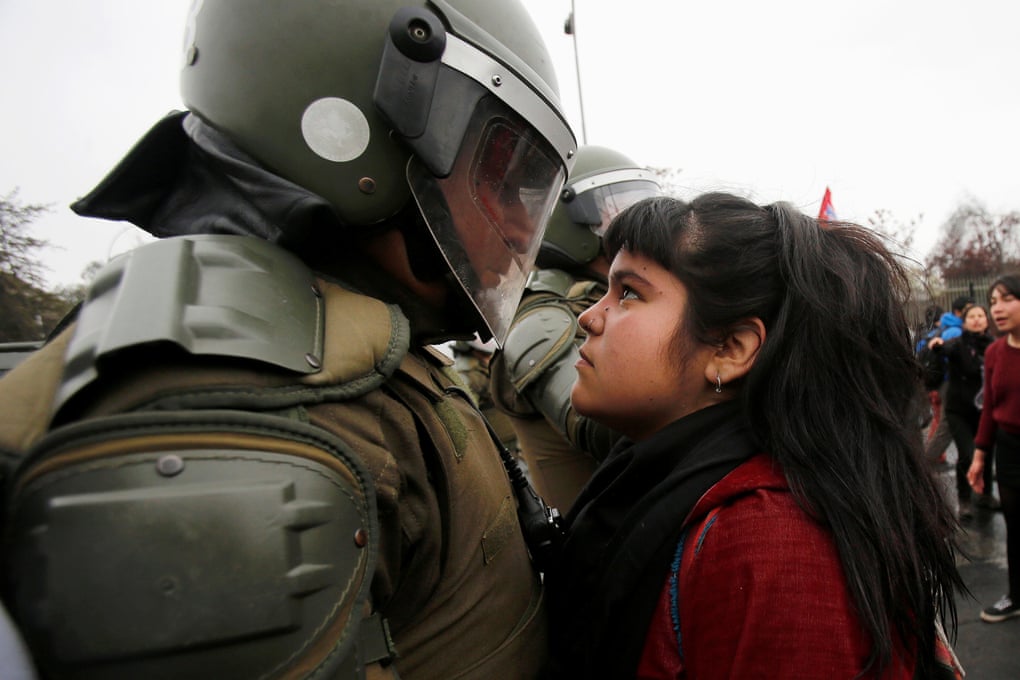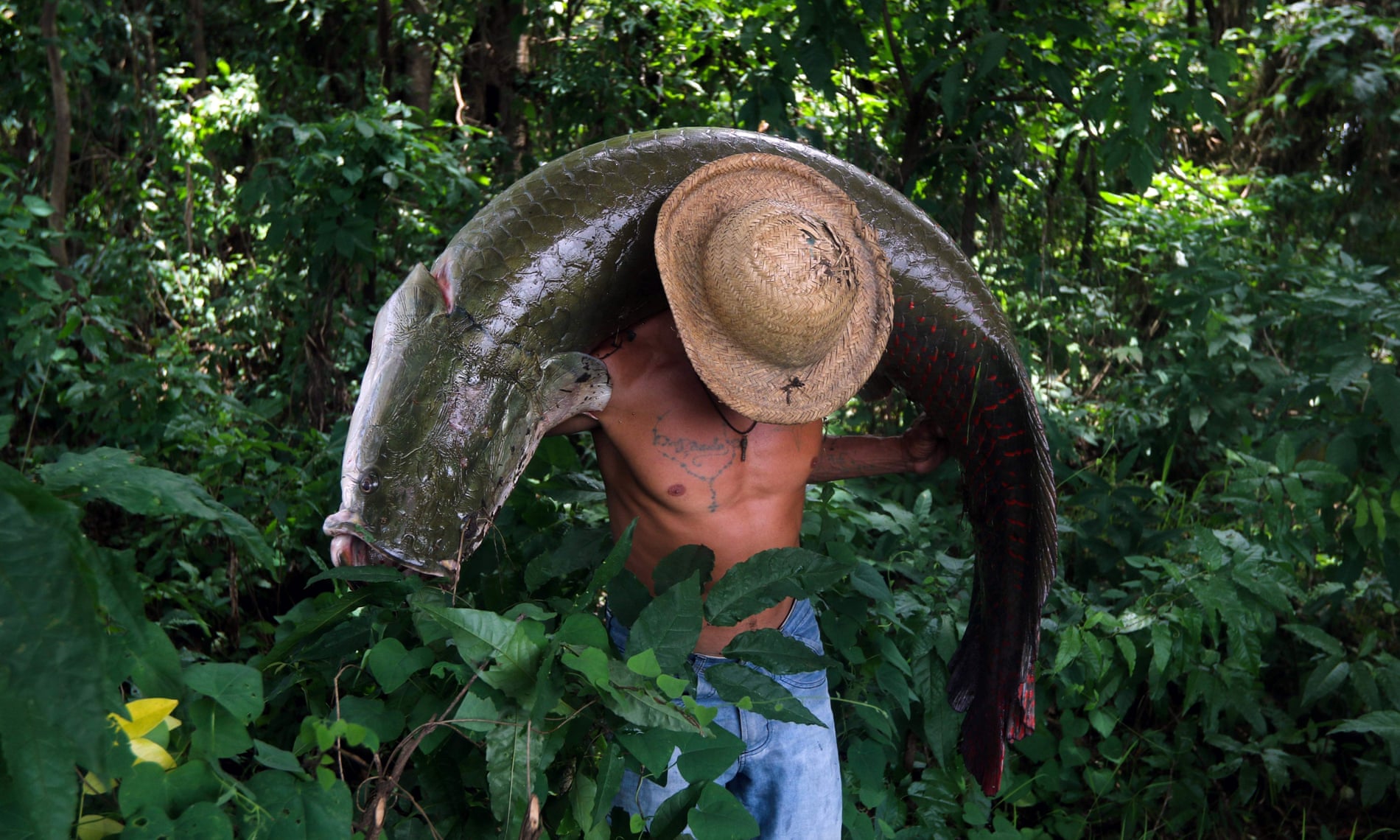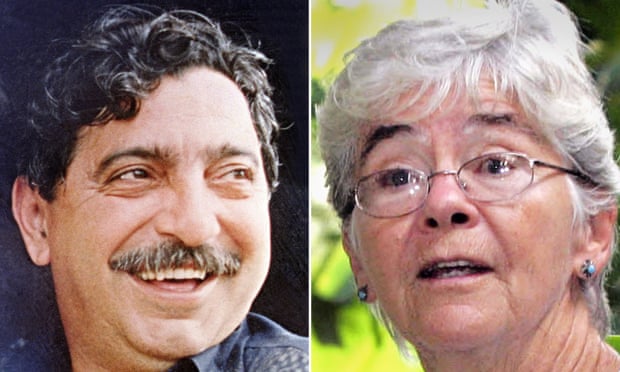‘Their vision needs to be shared’: the tiny shop championing the literature of the Amazon
The Guardian
Banca do Largo contains the world’s largest collection of titles by Amazonian writers – and its owner believes their Indigenous knowledge and voices should be more widely heard. (...)
By 2010, the shop stopped selling magazines and specialised exclusively in Amazonian literature.
(Text continues below the photo.)
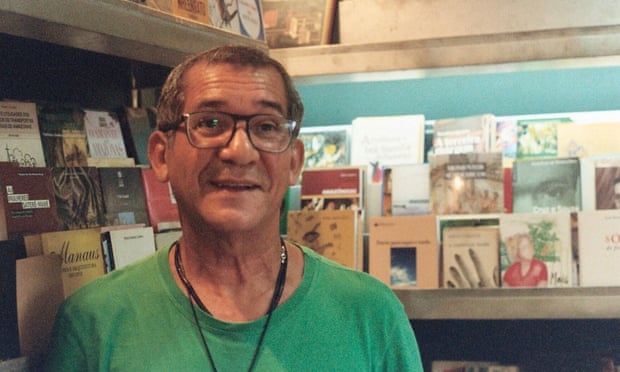
‘I spent my life searching for these treasures’ … Joaquim Melo, owner of the Banca do Largo bookshop, Manaus. Photograph: Mélissa Godin.
Over the past 12 years, Melo’s bookshop has become a key feature of Manaus society. (...)
The books on the shelves range from poetry collections celebrating the jungle’s forest and fauna to novels chronicling the experiences of Lebanese-Brazilian migrants. (...)
The first written text about the Amazon is believed to be a 1542 book which chronicles the day-to-day life of Spanish explorer Capitán Francisco de Orellana as he travelled through the Napo region in search of gold. A 1942 edition of the book is on display in Melo’s shop, but he is quick to mention that many explorers dismissed the way of life of Indigenous people. “As a result, the origins of Amazonian literature history as we know it are quite complicated from a cultural and political perspective.”
By the 19th century, Amazonian writers started emerging. In 1852, Lourenço da Silva Amazonas published Simá, a book that seeks to give value to the Amazon region and its inhabitants, placing it as a founding element of Brazil’s identity.
But the region’s literature really flourished in the 20th century, when writers such as novelist Milton Hatoum and poet Thiago de Mello began publishing. “Mello denounced the exploration of Indigenous land and the military dictatorship,” Melo says. (...)
Since then, a new generation of Indigenous authors have emerged. Writers including Ely Macuxi, Daniel Munruku and Ailton Krerak have changed the face of Amazonian literature. (...)
“Of course, there is a part of the Brazilian population that is interested in knowing ancestral and Indigenous knowledge,” he says. But the rise of the far right and fake news in Brazil means that people increasingly have prejudices about the Amazon and its inhabitants, Melo believes, ranging from racism towards Indigenous people to underestimating the seriousness of deforestation. (...)
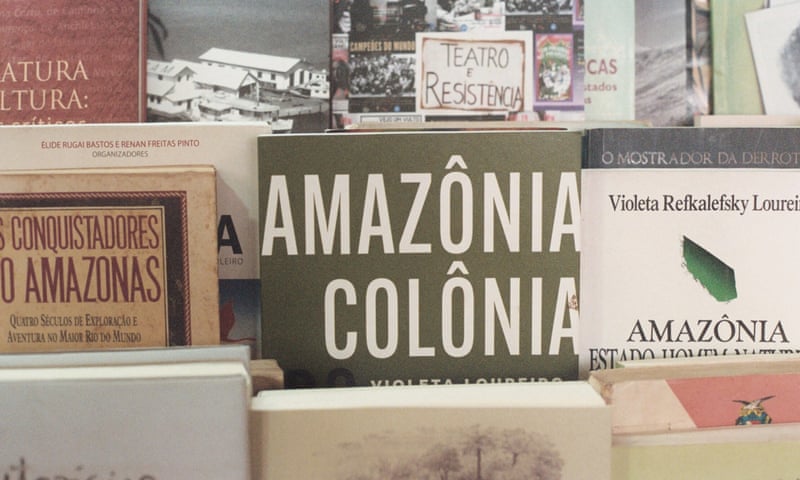
The real Amazon bookseller … shelves in the Banca do Largo bookshop, Manaus. Photograph: Mélissa Godin.
Tags: #brazil #brazilie #brasil #books #amazon #literature #manaus #bookshop #indigenous_people #rain_forest #racism #discrimination #deforestation #Francisco_de_Orellana #orellana #Lourenço_da_Silva_Amazonas #da_Silva_Amazonas #Simá #Milton_Hatoum #Thiago_de_Mello #de_mello #poetry #Ely_Macuxi #Macuxi #Daniel_Munruku #munruku #Ailton_Krerak #krerak
